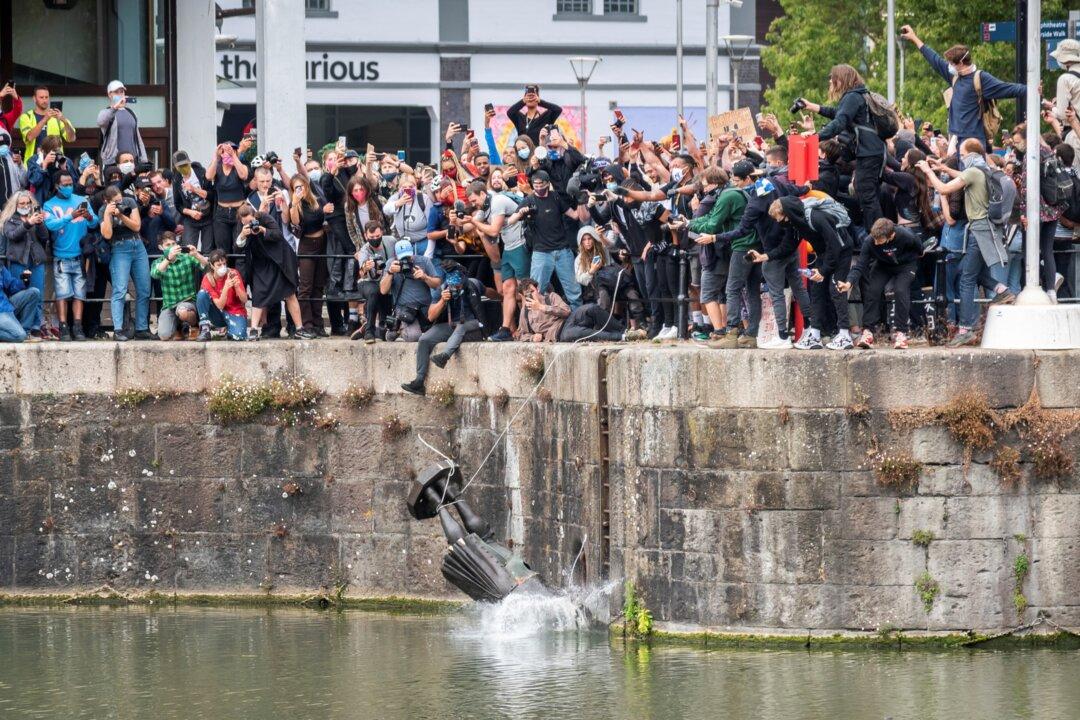Black Lives Matter (BLM) protesters who tore down a statue in Bristol, South West England, on June 7 have been referred to the country’s Crown Prosecution Service (CPS), the region’s chief of police said on Thursday.
In an interview on Radio Bristol, Chief Constable of Avon and Somerset Police Andy Marsh gave an update on the ongoing investigation into the pulling down and throwing into Bristol harbor of the statue of 17th-century merchant Edward Colston.





